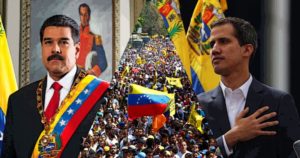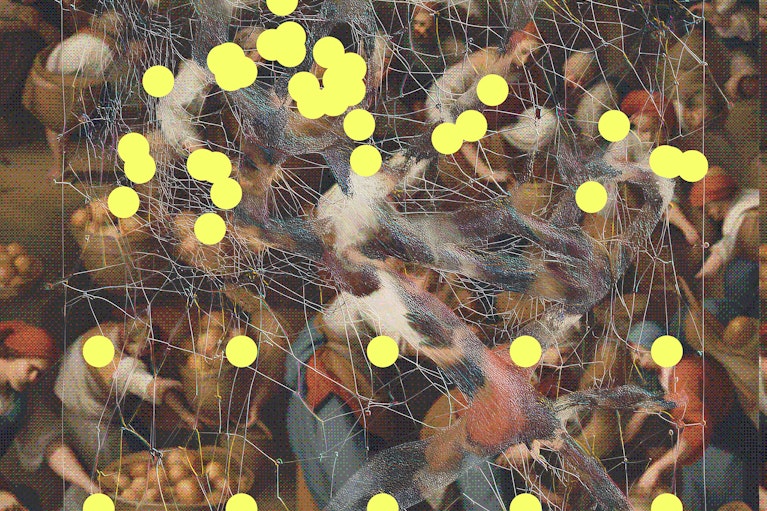Nathan Gardels is the editor-in-chief of Noema Magazine.
President Maduro, whose economic mismanagement has run the country into the ground and who has sought to gut independent institutions, including the courts and National Assembly, was returned to power recently in a coup of his own through an election widely recognized as rigged. Citing that fraudulent exercise, Juan Guaidó, the National Assembly leader, has declared himself the legitimate president according to the constitution. The military stands in the wings. As so often in Latin America’s past, the armed forces will determine whether democratic legitimacy wins out over the autocratic assertion of authority.
In this dramatic breach between two parallel claims to power, the international community is taking sides. Canada as well as several Latin American states — but not Mexico — have recognized Guaidó as the legitimate head of government. France, Germany and Spain are poised to do so this weekend.
Given America’s interventionist history in the hemisphere, U.S. recognition, along with sanctions announced this week on Venezuelan oil revenues, sits more uncomfortably. With President Trump and his hardline national security advisor, John Bolton, at the helm, goaded on by Sen. Marco Rubio (R-Fla.) and his constituency of right-wing Cuban and Venezuelan exiles, Maduro could not dream of a better foil to rail against American imperialism.
The sanctions, in particular, are a huge gamble. While worsening the suffering on the ground, they may well break the Maduro regime’s back by pushing the military to the opposition’s side. Or, precisely because they push Maduro’s back to the wall, they could ignite civil war, an all-too-real possibility given robust support for the regime by the autocratic alliance of Russia, Cuba and Nicaragua.
Lilian Tintori, human rights activist and the wife of imprisoned opposition leader and Guaidó mentor Leopoldo López, is hopeful. “In the coming weeks,” she writes from Caracas, “I am confident Guaidó, the National Assembly and the rest of us in the streets will finally achieve a democratic transition. Not only do we have the constitution on our side, but popular support as well. Almost 80 percent of the population thinks Maduro is a bad leader, including increasing numbers of traditionally pro-government sectors such as the military.”
It is on this turn by the military that she ultimately pins her hope. “We know that, just like the rest of Venezuelans, the members of the military are also suffering from hunger, disease and scarcities. High-ranking military leaders may be more reluctant to cede power, but we continue to engage with them, offering amnesty to those who abandon Maduro and have not committed human rights violations and are willing to support democracy. Already, groups of soldiers have stepped up to denounce the regime’s terrible repression. We are counting on more members of the military to honor their duty to protect their people.”
Breaking ranks with the Trump administration’s confrontational approach, U.S. Congressman Ro Khanna sees disaster ahead as the sanctions “accelerate Venezuela’s economic collapse.” He offers an alternative path. Aside from ending the sanctions, Khanna argues that “Congress should pass a resolution supporting Pope Francis’ approach of a ‘just and peaceful solution’ to the crisis. More than any political leader, the pope understands the primary risk is not which regime is in power, but a potential ‘bloodbath,’ as he put it. Both the Venezuelan and American people will be better served by a negotiated solution between Maduro and Guaidó than by a conflict that leads to increased instability and violence.”
Further to that point, the California congressman proposes that “the United States should lend its support to diplomatic efforts to find some form of power-sharing agreement between opposition parties, and only until fair elections can take place, so that there is an orderly transition of power. Mexico and Uruguay have already proposed a ‘new process of inclusive and credible negotiations’ to seek a peaceful resolution to the conflict.”
It is difficult to assess the relative balance of power between opposing forces in the fast-moving and fluid contest for authority and legitimacy in Venezuela today. Despite all other well-meaning efforts to avoid bloodshed, in the end it is the United States and the Venezuelan armed forces that will tip the scales one way or the other.





